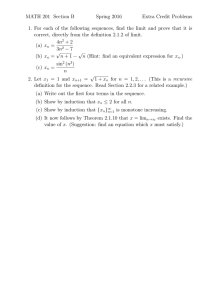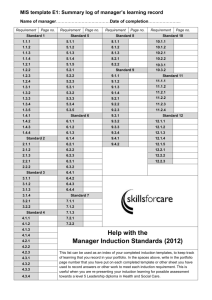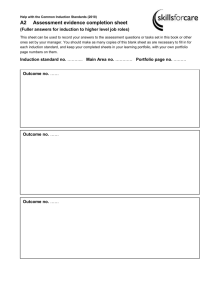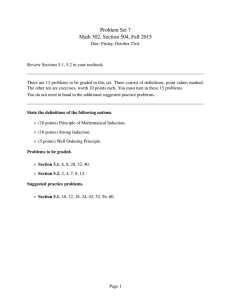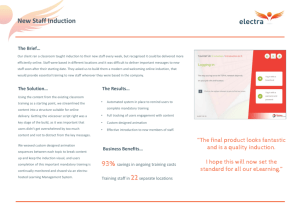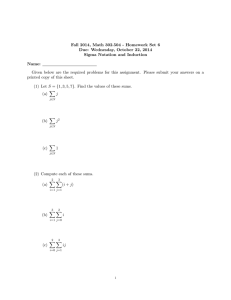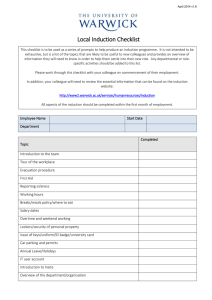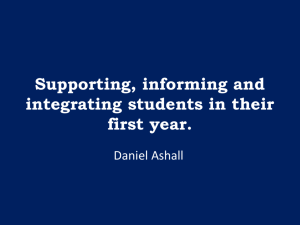First Impressions: Student Induction Warwick Network 2007 Catherine Thomson
advertisement
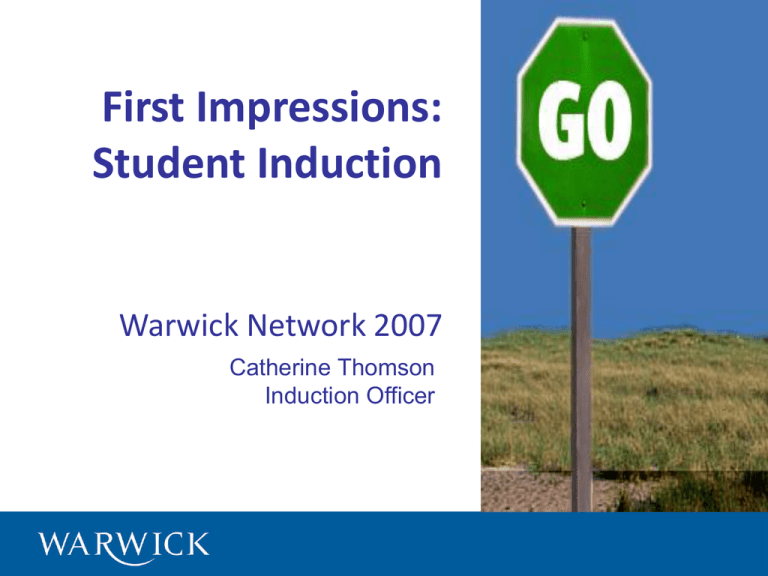
First Impressions: Student Induction Warwick Network 2007 Catherine Thomson Induction Officer Purpose and direction • To provide an insight into current inductionrelated activities at Warwick • To explore the notion and purpose of induction • To share practice and develop ideas • To engender a culture of shared ownership of induction The best years of your life? What do new students bring? • Expectations of course and institution • Ideas about the campus culture • Sense of pressure / apprehension • Varying amounts of financial freedom • Excitement • Variable skills for HE • Personal ambition • Helicopter parents The Warwick Welcome: Autumn 2007 • Enrolment • Arrivals weekend – Residences – Registration – VC’s addresses • Students’ Union • Orientation • Academic departments So, why is the first year so important? • • • • • • Last things first - graduation The undergraduate environment What do we want from our students? Employability Rites of passage Benefits for all Induction at Warwick: The Story So Far November 2005 – June 2006: QUAD Research report: Exploring student retention and the student experience at the University of Warwick February 2006: Student and Ancillary Services Consultation on induction (departmental) Late 2006: HEFCE TQEF funding allocated for induction (2007-2009) March 2007: Students’ Union paper on induction May 2007: Induction Officer appointed Where is Induction Situated? Induction Officer Students’ Union CSDE Student Development and Diversity Campus Affairs Academic Departments Administrative and support services International Office Residences What is induction? The purpose of induction For students For universities What do we think students need? • Clarity of communication (enrolment; where to get support; degree information) • Community (academic and social integration; course identity; learning and virtual communities) • Activity (subject engagement as well as information) • Certainty (enrolment, timetables and unit information) • Accessibility (IT, library, student support) • Security (where to go and who to go to) •Inclusivity (being able to access central services in ways which minimise fears about being stigmatised). How do we find out more about students’ needs? • Talking to - and listening to students • Working with their preferred communication methods • Monitoring service usage • Sharing experience • Building collaboration among staff Focus Group Exercise 1 1. What is induction made of? 2. When should induction start – and end? What is induction made of? Academic Administrative and support Residential The international factor Students’ Union When should induction start – and end? What is induction made of? When should it start – and end? Five groups 1. Academic 2. Administrative and support 3. Residential 4. The international factor 5. Students’ Union Focus Group Exercise 2: Delivery Options No induction week Induction week Consider… •When are students in a position to be introduced to the university? •What can we do pre-arrival? •Staff resources •Current initiatives: orientation, arrivals weekend •Work / life balance •The role of technology/ fact to face contact What happens without effective induction? • Little opportunity for students to understand the institution or their role in it. • Poor integration • Low morale • Risk to productivity • Failure to work to highest potential • Withdrawal • Impact on institution’s reputation (consider revenue) Do these issues affect you? In what ways? Whose responsibility is it? Induction Officer Students’ Union CSDE Campus Affairs Administrative and support services Academic Departments Residences International Office What Next? • • • • • • • Current activities Working with new students Building and strengthening links Providing centralised support and guidance Developing inclusive policy Generating buy-in, ideas and enthusiasm Collaboration is key The best years of our life? Contact Details Catherine Thomson Induction Officer Centre for Student Development and Enterprise Campus Affairs Email: C.V.Thomson@warwick.ac.uk Telephone: 024 761 50482
